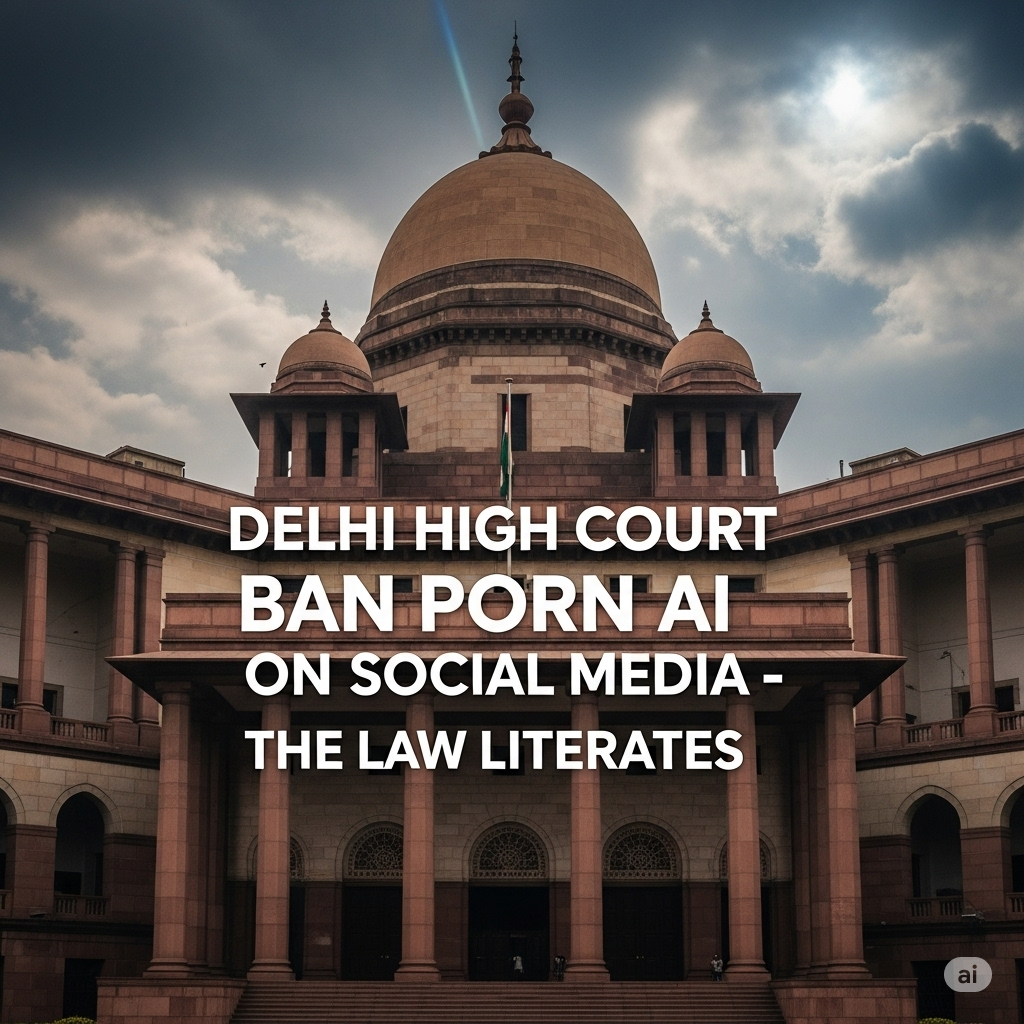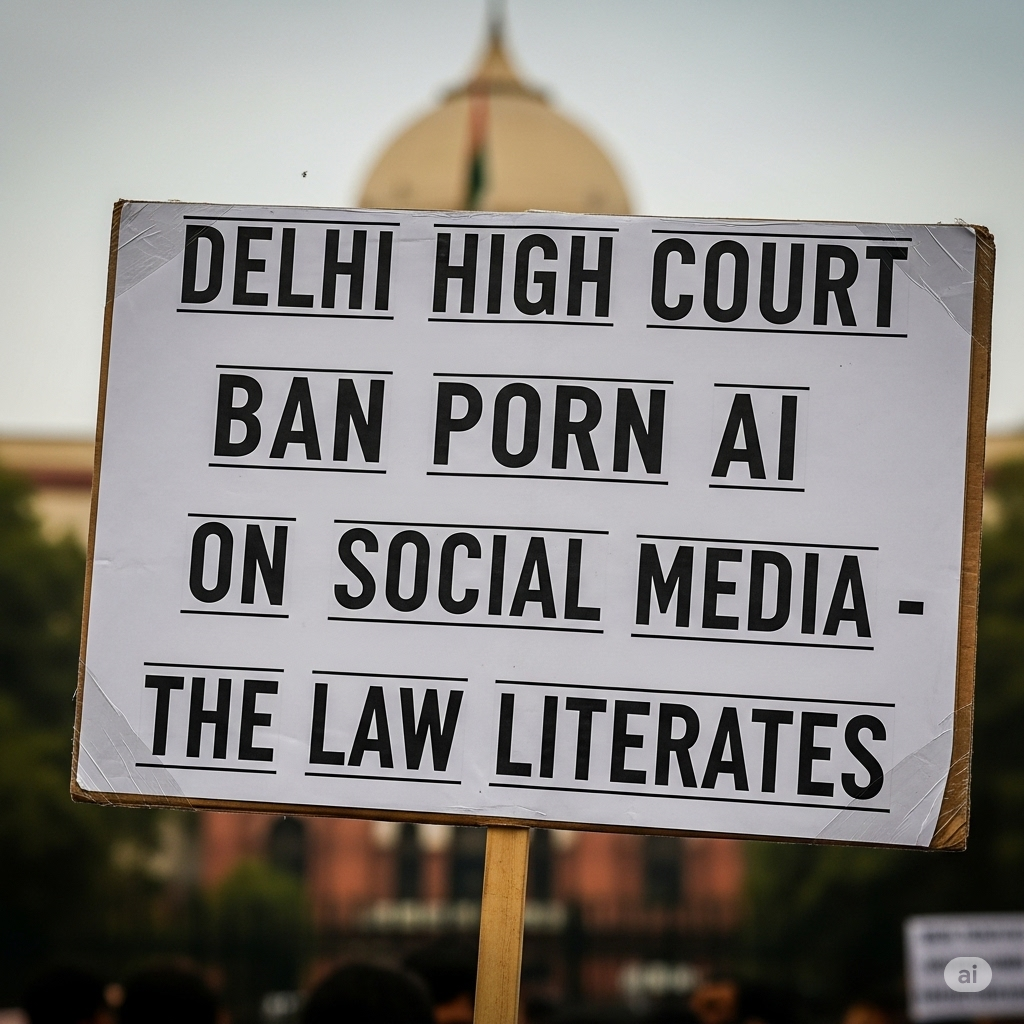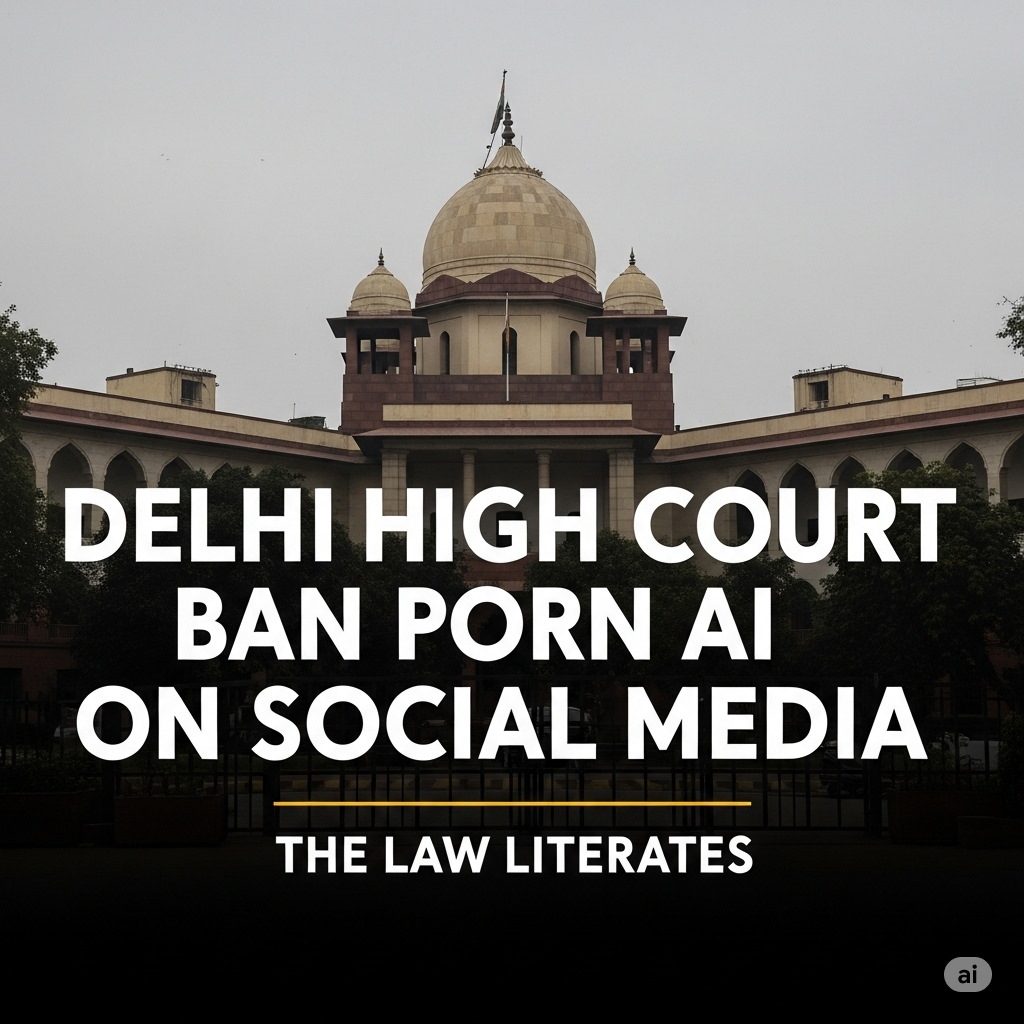Delhi High Court orders blocking of AI-generated porn of social media influencer
Delhi High Court orders blocking of AI-generated porn of social media influencer
The social media influencer approached the High Court stating that videos and photos uploaded online depicted her in an obscene and malicious manner
Delhi High Court directs porn sites and social media platforms to remove obscene AI-generated images of a woman influencer. Justice says the content is “deplorable” and violates her fundamental rights.
Introduction
The Delhi High Court on Friday ordered social media platforms and porn websites to take down the deepfakes and AI-generated pornographic pictures and videos of a social media influencer. Justice Purushaindra Kumar Kaurav passed an interim order, noting that the content uploaded is “completely appalling, deplorable, defamatory, and is a patent breach of the fundamental rights of the plaintiff”.
*About the case and statement of the case
The influencer had gone to the Delhi High Court for help, saying that some people had uploaded edited and fake photos and videos of her on social media and porn sites. These fake images made it look like she was involved in inappropriate activities, which was false and hurtful to her dignity. She told the court that this fake content was not just a personal attack but also broke her fundamental rights like the right to privacy, reputation and dignity. Her lawyer said it was also a civil wrong, meaning that it could lead to legal punishment under civil laws. After hearing the complaint, the judge agreed and gave support to her claims. The judge passed an order to stop further spreading of these images and videos.
Context & Content of the Court Order
Plaintiff’s Standpoint: A well-known influencer filed a suit after obscene, AI-altered images and videos went viral on social media and pornographic sites. She argued that the malicious production and circulation of these deepfakes violated her fundamental rights and amounted to a grave civil tort
- Court’s Interim Injunction: The High Court imposed a takedown order not only on social media platforms but on adult websites as well. It extended the right to the influencer to report any new URLs of such content, mandating immediate removal upon notification .
- Privacy Protection for Plaintiff: The court also ordered masking of the influencer’s identity in legal records, directing the court registry to expunge her name from public documents
Legal Significance
This decision follows a growing recognition in Indian law that AI‑driven deepfake pornography demands special attention. Under the Information Technology Act 2000, various provisions already criminalize:
- Cheating via personation (66D)
- Privacy violations (66E)
- Transmission of obscene content (67/67A)
- Government ability to block harmful content
However, until now, courts have not proactively wielded these at scale against AI-generated deepfakes. This High Court order marks a transformative shift: it proactively protects victims, authorizes dynamic monitoring, and treats deepfake creation as a serious breach of dignity and privacy.
Implications for Influencers and Content Creators
- Right to Demand Takedowns: You now have legal recourse to seek interim takedowns of non-consensual deepfakes.
- Dynamic URL Reporting: You can report fresh URLs for removal—platforms must act swiftly.
- Anonymity Safeguarded: Courts can withhold your identity from public documents, protecting you from further harm.
- New Legal Precedent: This sets a template for future deepfake defense and contributes to evolving legal standards under the IT Act and Indian jurisprudence.
📜 Judgment Summary
- Interim Injunction Granted
Justice Purushaindra Kumar Kaurav granted a temporary injunction, ordering all defendants—including social media platforms and pornographic websites—to immediately remove the AI‑generated obscene content depicting the influencer. The Court acknowledged this content as “completely appalling, deplorable, defamatory,” and a direct violation of her fundamental rights to privacy, dignity, and reputation - Dynamic Takedown Mechanism
The Court authorized the plaintiff to report any new URLs containing identical or similar offending materials. Once notified, platforms must take swift and decisive down‑action - Disclosure of Perpetrator Identity
Specific directions were issued to Meta (Facebook) and X Corp (Twitter) to disclose the identities and handles of the accounts responsible for posting the defamatory content, facilitating traceability and accountability - Protection of the Plaintiff’s Identity
To uphold confidentiality and her safety, the Court mandated that the registry remove her name and details from all public records, and amend the cause title accordingly.
To read the Judgment kindly click here : Law Literates DHC JUDGMENT PORN
Written By -ADITYA KUMAR SINGH GGSIPU BBALLB
All Rights Reserved ( Adv Vaibhav Tomar)



